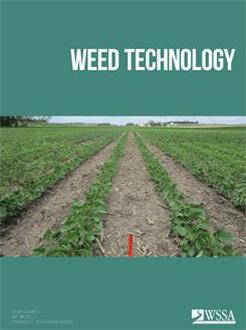Linuron herbicide has been a mainstay of carrot weed management for years, but uncertainty around regulatory registration review and an increased prevalence of herbicide-resistant weeds have spurred interest in identifying alternatives that can be readily adopted in production. With this context in mind, herbicide programs were evaluated on a coarse-textured, low organic matter soil in 2015 and 2016. Season-long weed control without compromising yield was possible with weed management programs that included prometryn POST instead of linuron. With that said, a PRE herbicide such as pendimethalin was critical to establish an early-season competitive advantage for carrot plants over weeds, and careful attention should be paid to the prometryn rate, as selectivity is marginal. Carrot is often interseeded with a grain nurse crop to mitigate risk of wind erosion. Nurse crop injury was minimal where S-metolachlor, pendimethalin, or prometryn was applied at rates labeled for PRE use in carrot, with the exception of where prometryn was applied at rates above 1.1 kg ai ha-1.
Nomenclature: Linuron; pendimethalin; prometryn; S-metolachlor; carrot, Daucus carota L






